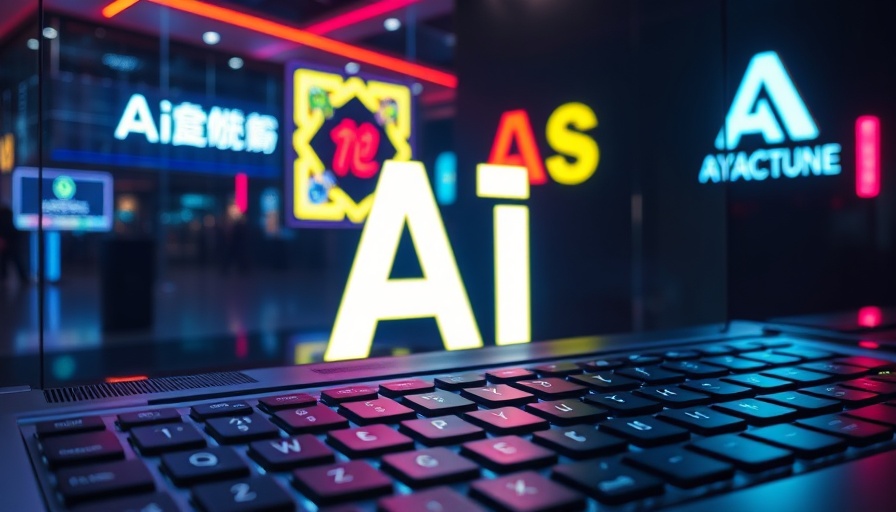
DeepSeek's Surprising Similarity to ChatGPT: What the Study Found
A recent study by Copyleaks has set the AI world buzzing, revealing that a staggering 74.2% of outputs generated by DeepSeek-R1 closely mimic those produced by OpenAI's ChatGPT. This revelation casts a concerning shadow over DeepSeek's development practices. The study utilized sophisticated AI fingerprinting technology to identify stylistic overlaps, raising critical questions about whether DeepSeek may have been trained on outputs from ChatGPT, potentially without proper authorization.
Understanding the Implications of the Findings
As the Copyleaks study suggests, the stylistic resemblance between DeepSeek and OpenAI is not just an anomaly but may indicate deeper issues related to intellectual property rights. Shai Nisan, head of data science at Copyleaks, compares the analysis to a handwriting expert identifying authorship; a significant number of DeepSeek's outputs were classified as ChatGPT’s. This revelation accentuates the urgent need for clearer regulatory frameworks within AI development, prompting discussions about the ethical standards companies should adhere to.
Market Impact and Industry Reactions
The implications of these findings extend beyond DeepSeek itself, potentially reshaping the AI market landscape. Following the announcement of DeepSeek's capabilities, Nvidia, a major player in the AI processor market, experienced a notable drop in its market value. This brings to light worries over how perceived innovation can disrupt existing players and raise questions about the integrity of such innovations.
The Ethical Dilemma: Originality vs. Access
The controversy surrounding DeepSeek raises fundamental ethical issues. If its outputs derived from unapproved usage of OpenAI-generated content, it underscores not only a potential violation of intellectual property but also questions about the transparency surrounding the AI model’s training data. As public discourse around AI ethics grows, many advocate for stringent regulations to ensure companies develop AI responsibly while still promoting innovation.
Future Directions: Regulatory Measures Needed
As the AI landscape continues to evolve rapidly, regulators are faced with the challenge of crafting frameworks that ensure intellectual property is protected without stifling innovation. With the significant overlap in stylistic output, calls for transparency in AI training data usage are becoming louder, with experts suggesting that AI fingerprinting be implemented to differentiate between model outputs accurately. Such measures could not only enhance trust in AI technologies but also safeguard against potential ethical lapses.
Public Sentiment and Calls for Transparency
The public reaction to the study and its implications has been mixed, with many expressing doubts about both DeepSeek and OpenAI's practices. While some celebrate the emergence of an alternative AI tool, others worry that DeepSeek's development may undermine original innovation. This dichotomy in opinion reflects broader concerns about accountability in the tech industry and the need for clear regulatory guidelines.
Concluding Thoughts: A Call to Action
As we navigate the complexities of AI ethics and innovation, the findings of the Copyleaks study highlight the pressing need for comprehensive regulations in the AI industry. Everyone involved—developers, policymakers, and consumers—has a role to play in demanding transparency and ethical practices. It's time for industry stakeholders to come together, advocating for standards that ensure fair competition while fostering creativity in AI technology.
 Add Row
Add Row  Add
Add 




 Add Row
Add Row  Add
Add 

Write A Comment